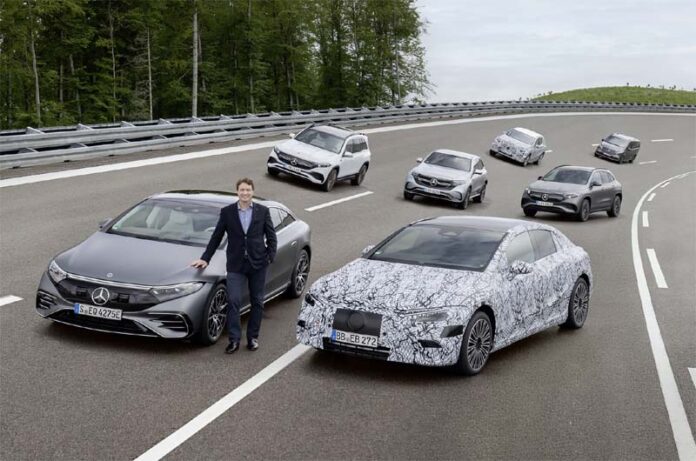
Mercedes-Benz is getting ready to go all electric by the end of the decade, where market conditions allow. Shifting from electric-first to electric-only, the world’s pre-eminent luxury car company is accelerating toward an emissions-free and software-driven future.
By 2022, Mercedes-Benz will have battery electric vehicles (BEV) in all segments the company serves. From 2025 onwards, all newly launched vehicle architectures will be electric-only and customers will be able to choose an all-electric alternative for every model the company makes. Mercedes-Benz intends to manage this accelerated transformation while sticking to its profitability targets.
“The EV shift is picking up speed – especially in the luxury segment, where Mercedes-Benz belongs. The tipping point is getting closer and we will be ready as markets switch to electric-only by the end of this decade,” said Mr Ola Källenius, CEO of Daimler AG and Mercedes-Benz AG.
To facilitate this shift, Mercedes-Benz is unveiling a comprehensive plan which includes significantly accelerating R&D. In total, investments into battery electric vehicles between 2022 and 2030 will amount to over €40 billion. Accelerating and advancing the EV portfolio plan will bring forward the tipping point for EV adoption.
According to a press release, in 2025 Mercedes-Benz will launch three electric-only architectures. The first, MB.EA, will cover all medium to large size passenger cars, establishing a scalable modular system as the electric backbone for the future EV portfolio. AMG.EA will be a dedicated performance electric vehicle platform addressing technology and performance oriented customers. VAN.EA will usher in a new era for purpose made electric vans and Light Commercial Vehicles, which will contribute to emission free transportation and cities in the future.
After reorganising its powertrain activities to put planning, development, purchasing and production under one roof, Mercedes-Benz will deepen the level of vertical integration in manufacturing and development, and insource electric drive technology. This step includes the acquisition of UK based electric motor company YASA.
Mercedes-Benz will need a battery capacity of more than 200 Gigawatt hours and plans to set up eight Gigafactories for producing cells, together with its partners around the world.
The company is also working on setting new standards in charging: ‘Plug & Charge’ will allow customers to plug-in, charge and unplug without extra steps needed for authentication and payment processing. Plug & Charge will go live with the market launch of the EQS later this year.
Mercedes-Benz is currently developing Vision EQXX, an electric car with a real world range of more than 1,000 kilometres, targeting a single-digit figure for Kwh per 100 kilometres (over 6 miles per Kwh) at normal highway driving speeds.
The company is currently preparing its global production network for electric-only output with the pace of the ramp-up designed to follow market demand. Thanks to early investments into flexible manufacturing, and the state-of-the art MO360 production system, Mercedes-Benz can mass produce
As soon as next year, eight Mercedes-Benz electric vehicles will be produced at seven locations on three continents. Furthermore all passenger car and battery assembly sites run by Mercedes- Benz AG will switch to carbon neutral production by 2022. To enhance manufacturing efficiency,
Mercedes-Benz is joining forces with GROB, a German global leader in highly innovative battery production and automation systems, strengthening its battery production capacity and know-how.






